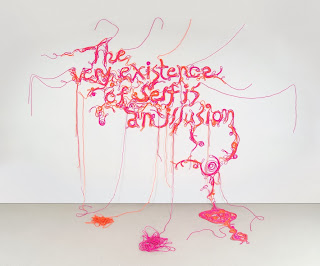Shenpa (Attachment) and Self Importance: Perhaps our biggest obstacle to true peace and awakening
December 14, 2013
Shenpa: Part 1 - The Juice of Self-Centered Emotions
In Buddhism we speak a lot about the false belief in an ego or self and how clinging to that self creates suffering. Sometimes this notion of clinging to the self may seem abstract. What does it feel like when we cling to the self? It is important to be able to identify that experience. We can directly examine the false belief in a self by looking at the raw, visceral experience of self-clinging and the suffering it produces. This particular brand of suffering is called shenpa in Tibetan.
One cannot really separate shenpa from ego-clinging; they are just different aspects of the same experience. But if we were to distinguish their qualities, we would say that shenpa is the energy and momentum that fuels the ego-clinging. Shenpa drives our habits, impulses and reactions. We must expose shenpa to our intelligence in order to see through its momentum.
In English, shenpa is generally translated as "attachment." But, some words, such as "shenpa" convey many dimensions which cannot be covered by a single term. Rather, shenpa is a pervasive discomfort; it is the underlying sense of “I, me and mine” and all the wants, needs, aversions, hopes, and fears that come out of that. So, shenpa will be found in our attachments and aversions, our stupidity, pride and jealousies.
The discomfort of shenpa can be vague and subtle, as one student described, like “having a stone in your shoe” or “a sour note that plays throughout the day.” Or when ego is strongly challenged, shenpa is the painful charge in the five negative emotions. Shenpa is the juice of our ego.
Shenpa comes alive whenever there is a strong sense of self-importance. We think of everything in terms of what we want in or out of our lives, what will help or hinder us, and what we hope and fear. We struggle to fix and maintain the world according to our preferences.
All of this is burdensome and impossible to accomplish and leaves us vulnerable to tremendous suffering. Even if our emotions are not wild and crazy, our internal struggle, our sense of not being content and at peace, will remain strong due to the strong presence of shenpa.
So please realize that unmasking the nature of our shenpa and self-importance is what places us on the path to peace. To expose shenpa to our own natural intelligence means to bring it out of the hidden dark corners of our minds into the light of our awareness.
The key in this process is to look at our habits, impulses and emotions without judgment. You can call this "confession practice" because you are willing to accept the challenging aspects of mind rather than trying to hide or manipulate them.
You can call it courage, or simply being honest with yourself. Whatever you label this process of discovery, it has a freeing quality. The underlying pain of shenpa begins to melt like ice when exposed to the warmth of our awareness. Recognition of our faults and tendencies then replaces the self-important struggles of denial, rejection and indulgence.
And so in the beginning we were innocent consciousness, pure perception of the present, with such a capacity of amazement, receptivity and attention free from conditioning.
Then with an accumulation of impressions, memories, concepts, inclinations, labels, habits, philosophies and prejudices...
we began to identify with the ego,
projection of the past and the future, incessant activity of the mind, conditioned attention and egocentric will.
Some other useful insights on how to recognize and manage the ego, shed attachment and the need for control which we know leads to anything but happiness...
1. Do not feel offended
2. Free yourself from the need to win
3. Free yourself from the need to be right
4. Free yourself from the need to be superior
5. Free yourself from the need to have more
Relating with others becomes a significant challenge when we do not maintain perspective and let go of control and negative attachment...
Once recognized, the ego naturally loses its grip, our attachments fall away and we begin to experience true happiness...our true nature...just pure love without expectations
♡


.jpeg)






